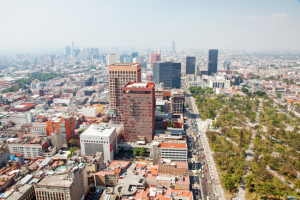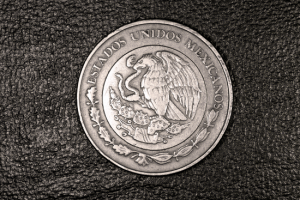
Edgar Ortiz
Edgar Ortiz has a degree in Law from the Francisco Marroquín University. He holds a master in Austrian Economics at the Rey Juan Carlos University in Madrid. He is the executive director of the Center of Economic and Social Studies (CEES). He is a professor of economics at the Francisco Marroquín University, and he is also an analyst on issues related to the situation at Canal Antigua. He works as an associate lawyer at Estudio Jurídico Rivera.
The increase in interest rates implemented by the Fed and the resulting outflow of capital from Mexico may begin to affect the good pace in credit growth in the country.
Click here to continue readingMexico continues to experience a yearly growth of less than 3%. Since the second half of 2014, growth rate in Mexico has been stagnant and predictions are that growth will continue at a slow pace throughout this year, as well.
Click here to continue readingThe effect of this has been seen in the performance of Argentina’s debt in the EMBI+, which has shown major improvement for one year now. Using basis points, the EMBI+ measures the difference between bond performance in emerging countries and American treasury bonds, Eurobonds and other risk-free economic instruments.
Click here to continue readingIt is true that commodity-producing countries have suffered from the fall of international commodity prices. Brazil, in particular, suffered a great extent. If we keep in mind Brazil’s main exports—which include iron, soy, oil, and sugar—it is logical that the country’s trade balance has deteriorated, as mentioned in a September 2015 article.
Click here to continue readingThe news about the fall in oil prices and the impact it has had on oil producing countries is nothing new. For Mexico, this fall has had a rather notable effect on local currency exchange rates, and in spite of the depreciation of the peso, exportations have not risen.
Click here to continue readingPublic debt is an increasingly important issue for Mexico. Between January 2014 and December 2015, Mexico’s public debt grew 33%. As Mexico’s debt to GDP reaches 52%, authorities continue to downplay the debt’s importance by pointing out that the debt level is still below that of similar nations. A poor consolation. Below is the debt’s change as percentage of the GDP.
Click here to continue readingThe most notable news in the economics and finance world has been the Federal Reserve’s decision to raise interest rates on December 16th. In response to the news, Mexico’s Central Bank raised its interest rate target by 0.25 percentage point.
Click here to continue readingThe media often report that Guatemala’s current financial situation is stable. We often hear boasts that the country’s public debt to GDP is low compared to other countries in the region. However, despite these claims, government finances have not followed a course that would make us optimistic.
Click here to continue readingMany people thought Brazil was the poster child of economic success for its supposedly sound economic and social policies. It was seen as one of the most promising emerging economies in the world and, given its size, was expected to assume a leadership position on the global stage.
Click here to continue readingThe main topic of discussion about the Japanese economy over the last twenty years has been its deflation and low economic growth. Japan’s last big economic policy bet has been its quantitative easing (QE) program launched in April 2013.
Click here to continue readingGet our free exclusive report on our unique methodology to predict recessions












